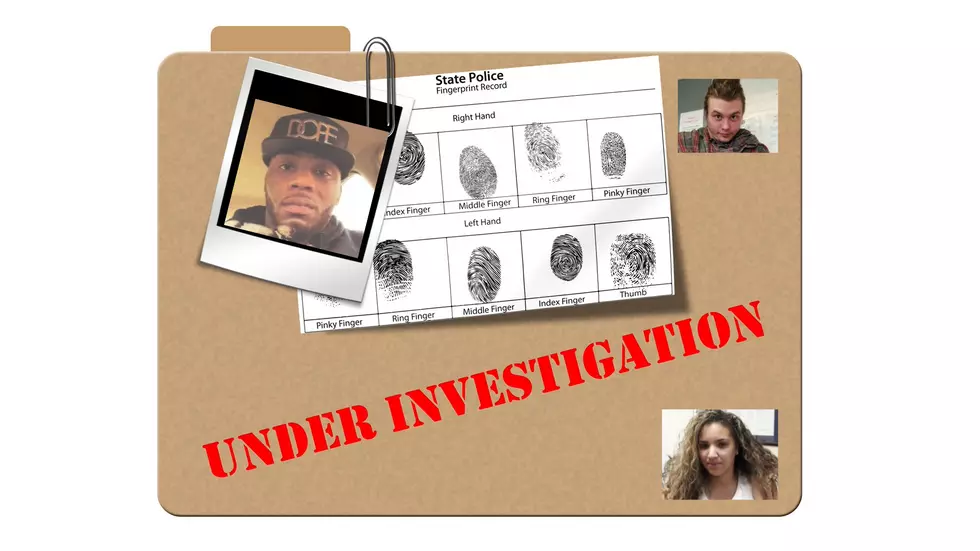
Danbury Mayor Dispels Rumors, Reminds Residents ‘We Are Prepared, Not Scared’
In the wake of the news that a Westchester County resident who works at both Danbury Hospital and Norwalk Hospital tested positive for Coronavirus, city and state officials are not only making sure that the community is prepared, but are also reminding residents that there is no need for panic.
As with most major issues and events, the internet tends to become the world's biggest game of telephone, allowing for the "rumor mill" to be fed at a rapid pace. They use the term "viral" for a reason.
Danbury's Mayor Mark Boughton decided to do his best to stay ahead of said Coronavirus rumor mill by taking to his social media account to once again let area residents know that what he and the local health officials know, we know. They say that they are keeping the public informed as soon as any new information comes along.
While Boughton didn't refer to any specific rumor or piece of misinformation in a Facebook post, asking residents to, "Please don't believe anything that you hear in the street or from someone who claims that they are 'in the know,'" the mayor called out one specific rumor in a twitter post, which apparently had people believing that "someone being testing positive at the Hospital who was a CT resident."
"That was untrue," Boughton tweeted. "We were notified late yesterday afternoon by NY State that this person was positive. Please don't incite mistrust. As soon as there is info we will get it to you."
The longtime Danbury Mayor then spent much of Saturday afternoon and evening fielding questions from many concerned citizens, ranging from public information policies to whether or not local schools will close due to any potential COVID-19 outbreak.
On Sunday morning, in true Boughton fashion, the mayor took to his social media accounts, partially in jest, to address the fact that some of the area's local stores are being cleared out of some common commodities:
He then followed that up with a simple, yet effective statement:
These discussions come on the heels of news that a Danbury Hospital employee, who lives in Westchester County, NY, tested positive for the COVID-19 virus.
Health officials say that the woman began treatment for the virus immediately, she has been removed from the workplace and self-quarantined. Officials assured the public that the limited amount of people that the woman has had contact with have been placed on a furlough from the hospital for the standard 14 days.
Danbury Hospital reminds citizens that that they "take care of infectious diseases everyday," and that their "staff is very well prepared to do so. We want the community to remain calm, remember to wash hands, don't touch your face, stay home if you feel sick, and to follow any precautionary guidelines that the CDC has put into place (see below)." The facility says they have been preparing for the potential outbreak since mid-January, and feel both comfortable and confident that they can ultimately keep our communities safe.
Meanwhile, Governor Cuomo has declared a state of emergency in New York as a play to expedite purchasing and hiring in the state in response to the Coronavirus, as the number of those who have tested positive for the virus has reportedly risen to 89.
Connecticut's Governor Ned Lamont urges any resident that is not currently showing symptoms of the virus (two or three days of fever, cough, and shortness of breath) can dial 211 at any time with any basic questions.
According to the Centers for Disease Control and Prevention, there is currently no vaccine to prevent coronavirus disease 2019 (COVID-19). The best way to prevent illness is to avoid being exposed to this virus. However, as a reminder, CDC always recommends everyday preventive actions to help prevent the spread of respiratory diseases, including:
- Avoid close contact with people who are sick.
- Avoid touching your eyes, nose, and mouth.
- Stay home when you are sick.
- Cover your cough or sneeze with a tissue, then throw the tissue in the trash.
- Clean and disinfect frequently touched objects and surfaces using a regular household cleaning spray or wipe.
- Follow CDC’s recommendations for using a facemask.
- CDC does not recommend that people who are well wear a facemask to protect themselves from respiratory diseases, including COVID-19.
- Facemasks should be used by people who show symptoms of COVID-19 to help prevent the spread of the disease to others. The use of facemasks is also crucial for health workers and people who are taking care of someone in close settings (at home or in a health care facility).
- Wash your hands often with soap and water for at least 20 seconds, especially after going to the bathroom; before eating; and after blowing your nose, coughing, or sneezing.
- If soap and water are not readily available, use an alcohol-based hand sanitizer with at least 60% alcohol. Always wash hands with soap and water if hands are visibly dirty.
More From The Wolf









